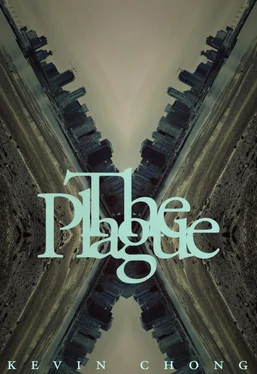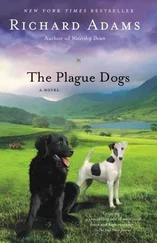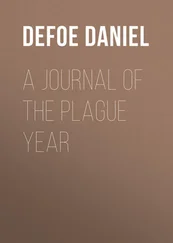“I reported about that,” Siddhu said. Hospital administration had relaxed their policy on visitors because infection rates weren’t being reduced. They also wanted to encourage the infected who were afraid to die alone to seek treatment. Siddhu had noticed a complacency settle in on Vancouverites since late-November. Some of them decided not to wear their face masks. They were returning to buses and other indoor public spaces as the weather had become more unfriendly. He couldn’t tell whether they were being fatalistic about infection or whether they thought themselves, having survived this far, impervious to the disease.
“He doesn’t look too good,” Horne-Bough said about the sick employee. “I was there for five minutes, but he could barely acknowledge me. The kid’s parents were crying. I couldn’t get out of the hospital quickly enough. When I got out and into a taxi, I wanted to tell the cabbie to turn onto the highway and drive. It was the first time I wanted to leave. If there was only a way to get out of here.”
Siddhu interrupted him. “I might have an idea,” he said. He proposed a story: He would document, wearing a body camera, going through (or under or over) the barricades and patrols. “I met this guy who says he’s gotten people outside.”
“And are you going to turn back?” Horne-Bough asked slyly. He could see Siddhu’s end game. “Are you going to stop when freedom is in hand?”
Siddhu thought about it for a moment. “I don’t think so.”
“Is this your resignation?”
“Who knows if I get across?” Siddhu asked. He had been ready to quit. Now it seemed like he could delay. “Maybe I’ll get stopped. I’m going to write this story however it turns out. I could still write about the quarantine from the other side.”
Horne-Bough threw his hands in the air. “You’re the only reporter I have left. Do I have a choice?”
They went in search of a video recorder he could use on his trip, something that could be concealed from publicity-shy smugglers. They decided that Siddhu would have to buy one.
The rest of the day felt like a dream. He filed his piece about the advent of the late-night funerals. Occasionally he would emerge from his daze to panic. Crossing the streets, he worried he might get hit by a car before he could see his family again. Wouldn’t that be the crowning absurdity in his life story?
He went to a local store that specialized in surveillance equipment to buy a covert video camera. The store seemed busy that day, full of people looking for GPS trackers, night-vision goggles, and cameras hidden in lamps and grandfather clocks. Siddhu settled on a camera that was built into a pair of fake reading glasses.
Outsiders might presume that living in a quarantined city with a more visible police and military presence would have amplified security. How much theft occurs in an airport? In fact, the city had enough pockets for would-be criminals to hide. Confinement and idleness drove some Vancouverites into criminality—they were normally law-abiding people who, at worst, stole unattended goods and bought fenced items. The disease made other people desperate. They raised online donation campaigns for friends immobilized by grief and then pocketed the proceeds. The rate of infection was overshot by the rate at which people robbed and stabbed one another. These people were roughly equalled in number by do-gooders like Rieux.
In the evening, he Skyped with his wife from a coffee shop. “Why aren’t you in your hotel room?” Uma asked him as she rushed their sons through dinner. She seemed annoyed. He noticed that she was also wearing makeup for the first time in weeks. “Why are you calling so early?”
He lied and said that he was on his way to another funeral. He didn’t want to tell her about his escape. That would scare her. He asked to see the boys, but they were too preoccupied with their chicken and rice to notice him. He asked Uma to leave the phone on the table so he could just watch them eat for a few minutes.
Then he found a more comfortable armchair in the centrally located coffee shop favoured by international students studying in front of textbooks and glowing laptops that displayed web pages in foreign languages. He was prepared to wait.
The call from Khan came at ten. He gave his address and was told that “an associate” would pick him up in five minutes. Siddhu stood outside and shivered for half an hour until the white cube truck appeared. The driver had a stringy beard and looked Southeast Asian. He didn’t speak, but pointed to the cargo hold, which was empty. Siddhu climbed inside.
He sat on the floor. He typed a note for his wife, one for her to read in case something happened on the way home. He admitted to his affair. He told her the combination to the safe in the basement rec room where he kept three-thousand dollars in cash and some of his grandmother’s jewellery. When he was finished writing, he left the note in his drafts folder. She would find it eventually if he didn’t survive.
The car stopped, and the cargo-hold door rolled up. Before his eyes could adjust to the light outside, he could smell the trash in the transfer station. The odour that came at him was first sweet, then stomach-churning.
A garbage truck was idling at the gate of the transfer station. His driver stood outside the cube truck talking to the driver, who was sitting behind the wheel. Siddhu’s phone rang. “My friend will give you a suit to wear. Put it on,” Khan told him. “Then climb into the garbage truck. By then you will know what will come next.”
Siddhu checked the camera in his glasses to make sure it still functioned and donned the mask. When he slung the heavy messenger bag over his shoulder, he wished he’d left his laptop with Oishi. The driver of the cube truck gave him a hazmat suit, then pulled out a grey garbage bin. He told Siddhu to don the suit and climb inside the bin.
What he feared happened next. The garbage truck driver extended the vehicle’s forked arms to pick up the trash bin. Siddhu found himself thrust into the air and then upended into bags of trash. He could see a slice of moon above him. And then one yellow canvas bag and then another was tossed into the truck. They landed on either side of him.
The garbage truck started to move. He felt something crawling on him. When he grabbed the rat, it squealed and bit the glove of his suit. He flung the rat over the side of the truck bed. Siddhu checked the glove and was relieved to see it wasn’t punctured. Another rat crawled onto him, then another. He imagined himself falling ill the second he got home. He fought the rodents off until the truck approached a checkpoint at the Knight Street bridge, then let the rats crawl over him until the truck was allowed to pass.
They approached an even fouler smell. He raised his head and could see a barge. The truck backed up in front of it. He could hear the sound of hydraulic pistons. Then he was tilting and started to slide. The rats squealed. He needed to dig himself out of the trash bags. Up above he could see the crows and seagulls circling. The trash was heaped in a hill toward the river-facing end of the barge. He climbed on his hands and knees up to the top of the pile. His was one of a flotilla of trash barges. In the distance, further up the Fraser River, he could see a Coast Guard patrol vessel.
He waited about half an hour, batting away vermin and swallowing his bile. Then a fishing boat pulled up to the lip of the barge. He climbed down the pile of garbage and took the pilot’s hand. The pilot climbed onto the barge and retrieved the two canvas bags.
“Do you mind sitting behind me?” the pilot asked when they climbed onto his boat. Siddhu became aware that he was radiating his stench.
On both sides of the river floodlights were trained to catch escapees. Their boat traversed a narrow bend in the river as soon as the Coast Guard was out of sight, and the pilot dropped Siddhu off at a shipyard.
Читать дальше












